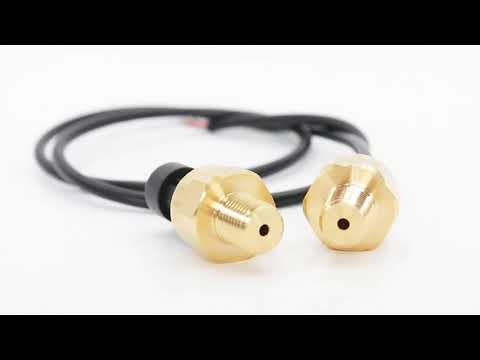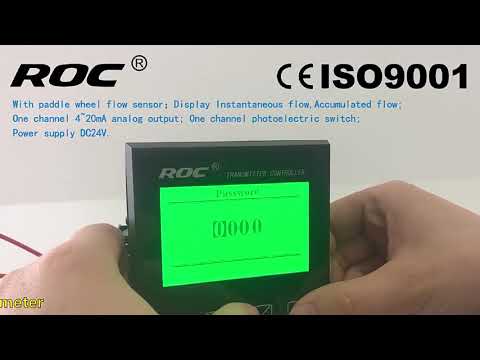Table of Contents
Benefits of Using Conductivity Meters for Water Quality Testing
Conductivity meters are essential tools for measuring the electrical conductivity of water, which is a key indicator of water quality. These meters are widely used in various industries, including agriculture, environmental monitoring, and water treatment. Conductivity meters are available for sale in a wide range of models and prices, making them accessible to both professionals and hobbyists alike.
One of the primary benefits of using conductivity meters for water quality testing is their accuracy. These meters provide precise measurements of the electrical conductivity of water, allowing users to quickly assess the quality of the water sample. This accuracy is crucial for ensuring that water meets regulatory standards and is safe for consumption.
In addition to accuracy, conductivity meters are also easy to use. Most models are portable and user-friendly, making them ideal for field testing. With just a few simple steps, users can obtain accurate conductivity readings, allowing them to make informed decisions about water quality.
Another benefit of using conductivity meters is their versatility. These meters can measure a wide range of conductivity levels, from ultra-pure water to highly contaminated water. This versatility makes conductivity meters suitable for a variety of applications, from monitoring drinking water quality to assessing the effectiveness of water treatment processes.
Conductivity meters are also cost-effective tools for water quality testing. Compared to other methods of water analysis, such as laboratory testing, conductivity meters are relatively inexpensive. This affordability makes conductivity meters accessible to a wide range of users, from small businesses to large corporations.
Furthermore, conductivity meters are durable and reliable instruments. Most models are built to withstand harsh environmental conditions, making them suitable for use in the field. With proper care and maintenance, conductivity meters can provide accurate measurements for years to come.
In addition to their accuracy, ease of use, versatility, cost-effectiveness, and durability, conductivity meters also offer real-time monitoring capabilities. Some models are equipped with data logging features, allowing users to track changes in conductivity over time. This real-time monitoring is essential for detecting trends and identifying potential water quality issues before they become serious problems.
Overall, conductivity meters are essential tools for water quality testing. Their accuracy, ease of use, versatility, cost-effectiveness, durability, and real-time monitoring capabilities make them indispensable for a wide range of applications. Whether you are a professional in the water industry or a hobbyist interested in monitoring water quality, conductivity meters are a valuable investment. With a wide range of models available for sale, there is a conductivity meter to suit every need and budget.
How to Choose the Right Conductivity Meter for Your Needs
Conductivity meters are essential tools for measuring the electrical conductivity of a solution, which is a key indicator of its purity and concentration of dissolved ions. These meters are widely used in various industries, including water treatment, agriculture, pharmaceuticals, and food and beverage production. If you are in the market for a conductivity meter, it is important to choose the right one for your specific needs.
When selecting a conductivity meter, there are several factors to consider. The first thing to think about is the type of solution you will be measuring. Some meters are designed for general purpose use and can measure a wide range of solutions, while others are more specialized and are better suited for specific types of solutions, such as high purity water or saline solutions.
Another important factor to consider is the range of conductivity that the meter can measure. Different solutions have different conductivity levels, so it is important to choose a meter that can accurately measure the conductivity of the solutions you will be working with. Some meters have a wide range of conductivity measurements, while others are more limited in their range.

Accuracy is also a crucial factor to consider when choosing a conductivity meter. The accuracy of a meter is determined by its resolution, which is the smallest change in conductivity that the meter can detect. A meter with higher resolution will be able to provide more precise measurements, which is important for applications where accuracy is critical.
| Model | TUR-6101 Laser Turbidity Data Acquistion Terminal |
| Range | 0-10/100/4000NTU or as required |
| Display | LCD |
| Unit | NTU |
| DPI | 0.01 |
| Accuracy | \\u00b15% FS |
| Repeatability | \\u00b11% |
| Power | \\u22643W |
| Power Supply | AC 85V-265V\\u00b110% 50/60Hz or |
| DC 9~36V/0.5A | |
| Working Environment | Ambient temperature:0\\uff5e50\\u2103; |
| Relative humidity\\u226485% | |
| Dimensions | 160*80*135mm(Hanging) or 96*96mm(Embeded) |
| Communication | 4~20mA and RS-485 communication (Modbus RTU) |
| Switched output | Three-way relay,capacity 250VAC/5A |
In addition to accuracy, the speed of measurement is another important consideration. Some meters provide instant readings, while others may take longer to stabilize and provide a reliable measurement. The speed of measurement is particularly important in applications where real-time monitoring is required.
Ease of use is also an important factor to consider when choosing a conductivity meter. Some meters are more user-friendly than others, with features such as a clear display, intuitive controls, and easy calibration procedures. A meter that is easy to use will save you time and frustration when taking measurements.
Finally, consider the durability and reliability of the conductivity meter. Look for a meter that is built to last and can withstand the rigors of your work environment. Some meters are more rugged and resistant to water and dust, making them ideal for use in harsh conditions.
In conclusion, choosing the right conductivity meter for your needs requires careful consideration of several factors, including the type of solution you will be measuring, the range of conductivity measurements, accuracy, speed of measurement, ease of use, and durability. By taking the time to evaluate these factors and choose a meter that meets your specific requirements, you can ensure that you have a reliable and accurate tool for measuring conductivity in your work. Conductivity meters are essential tools for ensuring the quality and purity of solutions in a wide range of industries, so it is important to choose the right meter for your needs.







